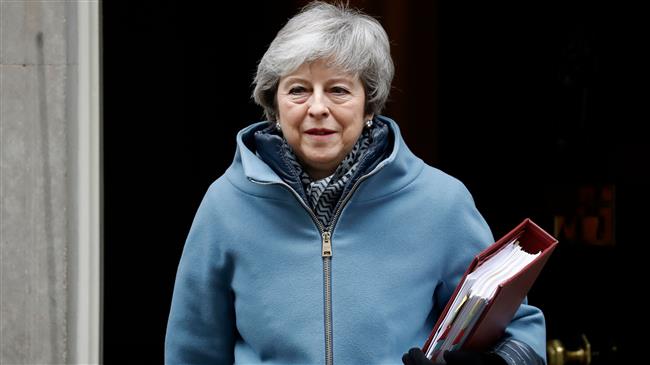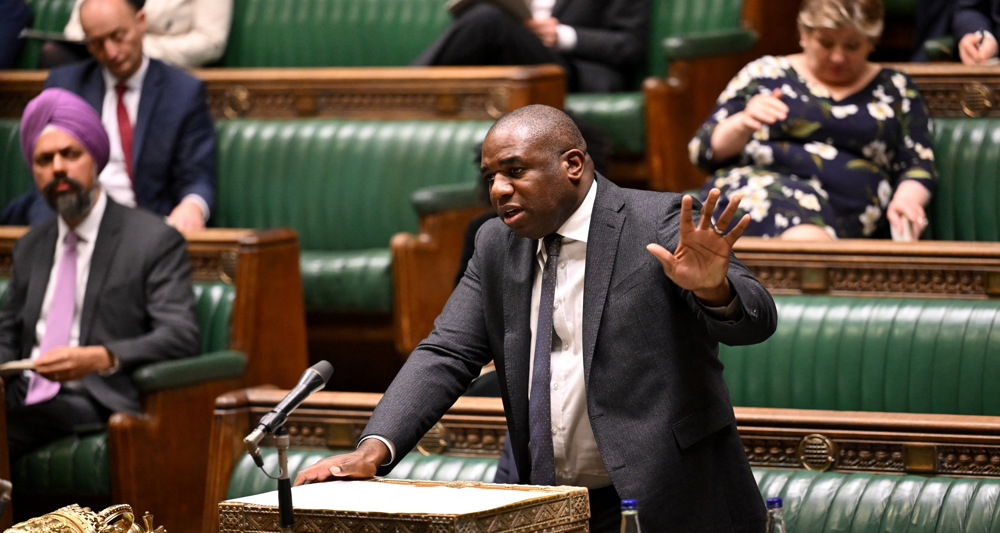EU gives UK 48 hours to come up with Brexit solution
The European Union has given Britain until Friday to table a workable solution to the Irish border dilemma if they want a breakthrough in stalled Brexit talks before the March 29 deadline.
British and European negotiators have been discussing possible changes to Prime Minister Theresa May’s withdrawal agreement to make it more appealing to lawmakers before it comes up for a meaningful vote in the House of Commons next week, according to UK media reports.
The opponents of May’s deal argue that the backstop undermines Britain’s sovereignty, arguing that it may trap the UK in a permanent customs union with the EU.
Speaking to the media on Thursday morning, France’s Europe minister, Nathalie Loiseau, said London had yet to offer any “precise proposals” on the so-called Irish backstop clause, the main bone of contention between lawmakers and the government.
“I'm not working on ifs and when's, I'm working on the positions or the proposals of the British government. We are waiting for a proposal from the British government, we have heard what you don't want, we are willing to know what you want,” Loiseau told BBC early on Thursday.
“Let me tell you, there we no precise proposals, no. There were ideas, but there were never, until now - maybe there will be today because I know talks are going on in Brussels - but we are waiting for a sustainable proposal.”
A European Commission spokesperson said Wednesday that talks had been “difficult” so far and that “no solution” was in sight.
Irish prime minister Leo Varadkar confirmed the reports about London’s failure to find a solution, telling the Irish parliament earlier this week that May’s team had put forward no actual legal text for the EU to consider.
After his latest meeting with the EU negotiators on Wednesday, UK Attorney General Geoffrey Cox refused to reveal the discussions but said “both sides have exchanged robust, strong views and we are now facing the real discussions.”
A leaked diplomatic note from European negotiators suggests that London has proposed two possible changes to the backstop but both of them have been turned down.
EU officials are said to have rejected both these plans because they believe they would undermine the certainty of the backstop preventing a hard border in Ireland.
May is expected to visit Brussels herself either this weekend or on Monday if enough progress is made.
Her visit would come a day before the second planned meaningful vote on the deal next Tuesday.
If the lawmakers once again reject May’s deal, they should on Wednesday decide a no-deal exit and on Thursday whether the Article 50 of the Lisbon Treaty should be extended.
Relentless Israeli ceasefire violations justify need for self-defense: Lebanese MP
Tel Aviv tells Damascus Israeli forces will remain in occupied territory: Report
Dec. 22: ‘Axis of Resistance’ operations against Israeli occupation
‘Abhorrent’: Oxfam says only 12 trucks delivered aid in North Gaza since Oct.
VIDEO | Leader receives religious eulogists on Hazrat Fatima birth anniv.
Pope Francis slams Israel’s ‘machine-gunning’ of Gaza children
US hostage-taking of Iranian nationals violation of intl. law: Deputy FM
VIDEO | Carol Singers for Palestine on London’s Parliament Square











 This makes it easy to access the Press TV website
This makes it easy to access the Press TV website